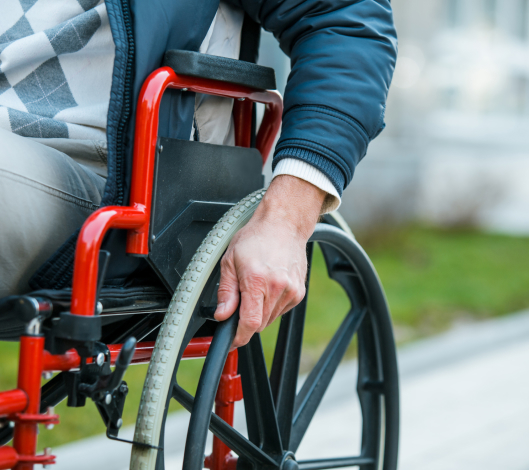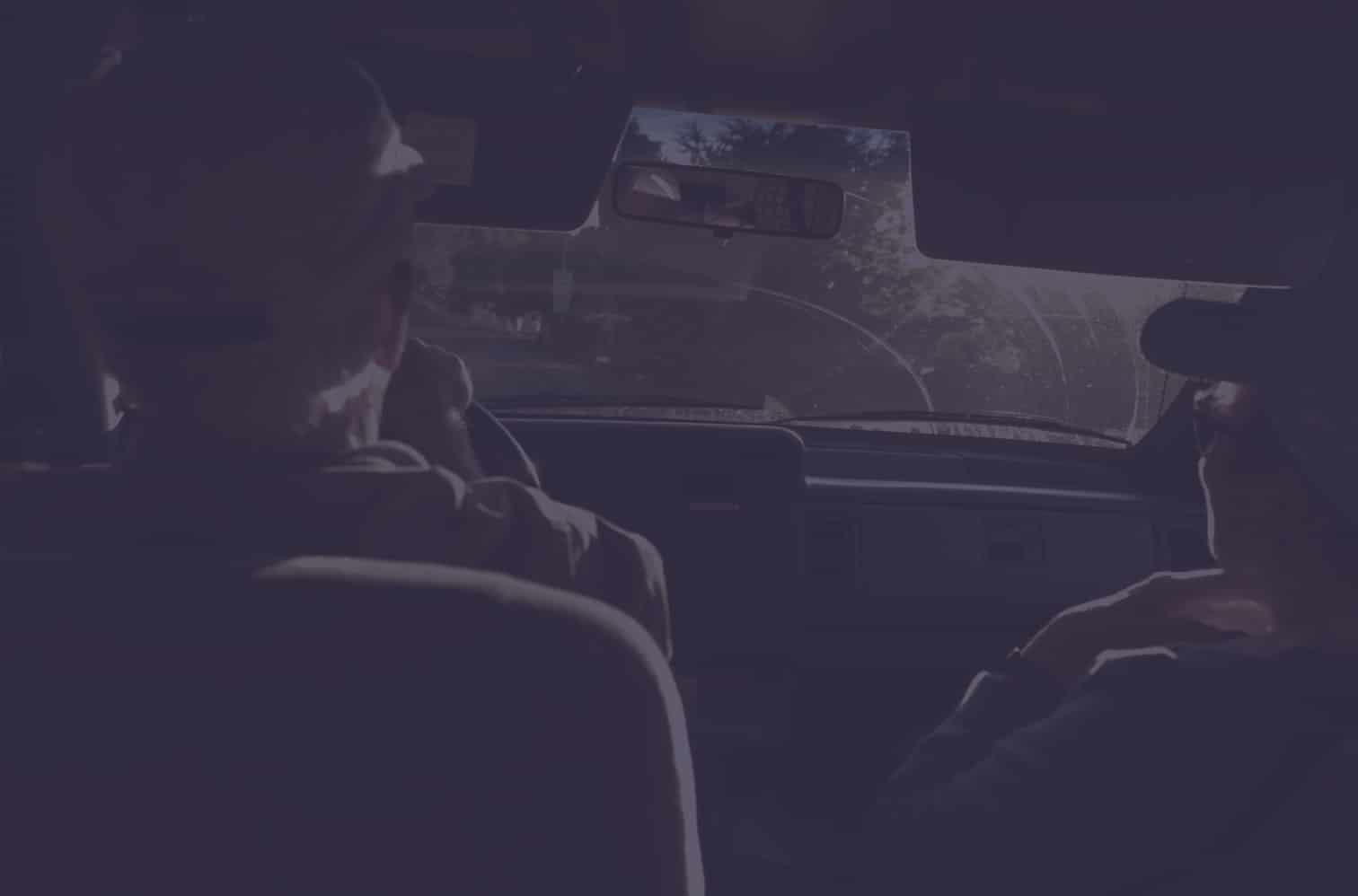
Long-Term Disability Lawyer
Was your disability insurance claim denied? Is the insurance company arguing that you and your treating doctors aren’t being truthful or honest? It isn’t right, and it isn’t fair. Let BenGlassLaw review your denial letter for free, and help you fight for the LTD benefits you paid for. No cost to get started on denied claims.
Don’t let a skeptical insurance company deny the benefits you deserve.
You worked hard for your career. You bought long-term disability insurance to protect what you’ve earned and protect your family. You paid your premiums on time. You hoped you’d never need it, but were glad you had it. Because now, you need the coverage you’ve been paying for all these years.
There’s just one problem: The insurance company doesn’t believe you. They’re telling you that you can still work, or that your condition doesn’t qualify. Or maybe they’re hassling you over every bill you send their way, arguing that your care isn’t necessary or your doctors don’t know what they’re doing.
Big insurance companies should not be allowed to do this to anyone, let alone someone who can’t work. But you are in the right place. Our ERISA long-term disability team is here to guide you through the process.
We are the top filer of long-term disability lawsuits in our area. In fact, no one else in the Mid-Atlantic matches our numbers. In 2021, 2022 and 2023, we recovered over $3 million each year in wrongfully denied disability insurance benefits for our clients through insurance appeals and lawsuits. We currently manage over $33 million in future benefits for our clients.
Other Important Long-Term Disability Articles:
- Long-Term Disability Payout Calculator
- Attorney Awarded Long-Term Disability Benefits for Stressful Job
- Coal Miner Wins Case for Long-Term Disability Benefits in Federal Courts of Appeals
- Understanding the Short-Term Disability Claim Process
- The Insurance Company Wants to Buy Out (Settle) My Long-Term Disability Claim
- Winning Your Long-Term Disability Case – a Resource Guide for Claimants
- How To Win Your Long-Term Disability Claim Against Reliance Standard
Want to listen to a few of Ben’s arguments in the Federal Courts of Appeals? Use this link and scroll down the page when you get there:
And don’t forget about our YouTube Channel!
Be sure to visit the BenGlassLaw Long Term Disability Channel on YouTube.

Why work with our long-term disability lawyers?
BenGlassLaw fights for disabled workers and their families across the nation. What makes us unique?
Experience
We handle more long-term disability claims than any other firm in the region. Lawyers throughout the Mid-Atlantic send their toughest cases to us.
Leadership
Our work in long-term disability law is recognized and respected across the nation. Disability attorneys come to us to learn our techniques and processes.
Ongoing Support
Once we get you back on claim, we’ll handle the insurance company going forward, for as long as you receive LTD benefits. Let us worry about getting medical bills approved.

If You Are a Business Owner
Business owners, entrepreneurs, executives, and other high net worth individuals often struggle to get long-term disability claims approved, and mistakes can be extremely costly. Our attorneys can help.
Learn moreIf You Are a Health Care Professional
Doctors, dentists, nurses and other high-pay, high-stress medical professionals get valid long-term disability claims denied all the time. Turn to Virginia’s top long-term disability lawyers for help.
Learn moreShort-Term Disability Claims
Most disability attorneys won’t touch short-term disability claims—too hard and “too small.” Not BenGlassLaw. We know there’s nothing small about being denied benefits. We can help.
Learn more
Client testimonial
Available 24/7
Let us help you tell your story
Here’s how BenGlassLaw can help you right now
If you haven’t filed for long-term disability yet, we should talk about that before you stop working (or as soon as possible). We offer paid consultations with our highly experienced disability attorneys, who will review your disability policy, talk about your medical issues, and chat about your job. You will walk away from that call or meeting with a definite plan of action. Call us now message us using the button at the top right to get started.
If your claim has recently been denied, send us your denial letter as soon as possible. We will review it and give you a detailed strategy for moving forward. This service is completely free, but you must act promptly. The insurance company only gives you a limited time to appeal or their decision is permanent. Upload your denial letter securely here or email it directly to our team at [email protected].
If you are on claim and have questions, but we don’t currently represent you, you have a couple of choices:
- Have a short, free call with one of our non-attorney disability specialists. They are often able to get your questions answered about processes and procedures. They do not give legal advice.
- Schedule a paid consultation (in-person, call, or video) with one of our disability attorneys, Damon Miller or Ben Glass. (We are headquartered in Fairfax, Virginia, but do much of our client work by Zoom and phone. We work with clients throughout the country.)
Long-term disability case results
Since 1995, BenGlassLaw has been helping sick, injured, and disabled workers fight unfair claim denials, get the benefits they paid for, and get their lives back on track. Here are just a few of our big wins:
Frequently Asked Questions
There’s no substitute for speaking in person with an experienced disability attorney about your situation. But if you still aren’t quite sure about your options, feel free to review the FAQs below. You deserve real information and real answers about your legal case, and we love to provide free information to anyone who wants it.
Do I need a long-term disability attorney near me in Virginia?
There are certainly some advantages to hiring an experienced long-term disability lawyer near where you live, although it isn’t always easy to find one close by. BenGlassLaw is one of the few law firms that regularly handles ERISA long-term disability cases in Virginia; in fact, we file over 80% of all new long-term disability lawsuits filed in the state each year.
However, the good news is that, due to ERISA regulations, you don’t actually have to live physically close to your attorney to hire them, or for them to represent you in court. It’s more important to find an experienced LTD attorney who is the best fit for you.
BenGlassLaw has won benefits for people all across the United States. We offer a free review of your denial letter.
Warning: There are law firms soliciting long-term disability insurance cases who will refuse to file a lawsuit for you if they are not successful on the internal appeal with the insurance company. These firms then dump clients, telling them, “Sorry, written appeals are all we do.” Do not hire a firm to do your disability appeal if it isn’t willing to file a lawsuit against the insurance company if necessary. Watch this video to find out how to find the best long-term disability attorney for you.
When should I hire a lawyer after my disability claim was denied?
First, please go watch this video for a horror story of what happened when a claimant appealed her long term disability denial on her own.
If the insurance company has denied your long-term disability claim, you have a limited timeline to appeal the decision. So, when should you hire an attorney? Hire the attorney now.
There is a big temptation to do the appeal yourself (or to have your doctor do it for you.) Please don’t. If your appeal is denied and you have to go to court you will not be able to add evidence or arguments beyond what you put in your appeal. An experienced attorney can get this right.
If you are going to hire an attorney, hire them soon. The more time an attorney has to work with your case, the better prepared your claim will be. You know your story, but the attorney does not. He or she must work through your background and get all the facts, then write a legal appeal. That takes time, and every day, minute, and second counts.
Will the insurance company put me under surveillance?
Yes, they will and theu will pour over your social media as well. That’s why it is important not to submit fraudulent disability claims. The insurance company WILL find out and you will be denied and possibly subject to criminal and civil penalties.
What is the most likely month that my long-term disability claim will be terminated?
The most likely month that your benefits will be terminated is on the 21st month after payment started—or in other words, two years after you become disabled, considering most long-term disability plans have a 90-day waiting period before benefits begin.
There’s a reason for this.
Most long-term disability policies provide that you will be paid benefits for 24 months if you meet the definition of disability and you cannot perform your “own occupation.” After 24 months, the definition of disability changes to “any occupation,” meaning that you will only be paid if you cannot perform “any occupation” to which you are reasonably suited. This is a much harder standard to qualify for.
Note, these definitions do vary based on your specific disability insurance policy. Email or call us and we will look at your policy for free and give you our analysis. Call us for email contact information.
What if my doctor refuses to cooperate with me in applying for disability?
This is usually very bad for the claim. You might want to have a serious heart-to-heart discussion with your doctor about why he or she is refusing to cooperate with you. It may be that they think you aren’t really disabled. Or, it may be that they feel they aren’t being paid for their time filling out mounds of insurance company forms.
You need to know where your doctor stands on the issue of disability before you apply for disability benefits. It is the kiss of death for your claim to have your doctor telling the insurance company that you are not disabled.
Why did my insurance company ask me to file for Social Security Disability?
Most disability insurance contracts require you to file for Social Security Disability Insurance (SSDI) if the insurance company asks you to. If you qualify for SSDI benefits, your disability benefit from your long-term disability insurance policy could be reduced.
Quite possibly, the insurance company will recommend a specific Social Security Disability attorney.
No matter which attorney you choose for the Social Security claim, you will be reimbursed by the disability company, so they are all “free” in that respect.
But here’s the real problem. While the representative recommended by your disability insurance company should prioritize your best interests, they often (or more like always, in our experience) work aggressively to make sure the insurance company gets its repayment of benefits. They’ll have you sign a form, typically authorizing them to put their hands right into your checking account to grab money if you get your SSDI benefits. In my opinion, that’s a major conflict of interest.
Here’s another thing we’ve seen. Knowing that the long-term disability insurance company will pay minimal benefits if your disability is related to mental illness, the “free” attorney recommended by the disability insurance company will work to make your SSDI claim a “mental” claim. That’s good for your disability company and bad for you.
It is, in my opinion, always better to hire a good, independent Social Security Disability attorney who is local to you and who will look out for your best interests only.
What do I do if I receive conflicting medical recommendations about major surgery?
In most cases, your long-term disability insurance company cannot force you to have extensive surgery. However, if a relatively simple and safe surgery has been recommended to you, and all your doctors agree it would allow you to resume working, the insurance company could deny your claim if you refuse the procedure. We have seen courts uphold denials under those circumstances.
The termination letter says I missed a deadline. Is my case lost?
Not necessarily.
Each case is different, and we have seen insurance companies terminate benefits when a particular form has not been filed on time. However, benefits can be reinstated once the form gets filed. Of course, this assumes that it has not been months and months since some form was due and you have totally neglected your duty to communicate with the insurance company.
Again, each case is different. Ben Glass offers a free review of your termination letter in order to determine whether he can help or whether he can refer you to someone who can help.
Does my insurance company share my records with my employer?
The health information you supply to your employer’s disability insurance company should not make its way back to your employer. This would be a violation of confidentiality laws.
In our experience, most disability insurance companies are very good at making sure this private information does not go to the employer.
Do I have to be “actively treated” to receive benefits? What does this mean?
Most disability insurance policies do require that you be under the ongoing care of a physician to maintain your benefits.
However, the term “actively treated” has different meanings for different illnesses. At some point, the insurance company may require you to see an independent medical doctor who will determine whether the treatment you are receiving from your current doctor is appropriate.
With some diseases/illnesses, periodic checkups at six-month intervals are appropriate, but each case is different. If you run into problems with your disability insurance company, you should seek the advice of an experienced disability insurance attorney.
How do I get my long-term disability claim records?
If your policy is a group policy, then it is probably regulated by ERISA. If so, you are entitled to a complete copy of the claim file by writing to the company and asking for all relevant documents that make up your file. They have 30 days to give it to you. When you get it, make sure that it contains at least the following:
- your plan or policy
- any summary plan description
- any records you sent them
- any records your doctor sent them
- any records they received from authorizations you signed
- any internal notes they made while processing your claim
- reports from any doctors that they had look at your case.
Remember, if you are going to appeal your case, you generally have 180 days from the date you received your denial letter to appeal.
I’m applying for long-term disability benefits through my employer-provided insurance. Do I need a disability insurance attorney?
It may sound self-serving to say so, but the answer is “yes.” Just call us and let’s have a no pressure, free, chat, first. Our team can explore representation options with you.
You should also explore our YouTube Disability Channel.
Ben Glass is also the producer of the ERISA Disability Litigation podcast.
It’s best to involve a disability insurance lawyer as soon as you consider making a claim, even while you are still working.
You take a big risk if you stop working only to find out you don’t have a provable disability. You could end up losing your job and benefits, such as life and health insurance. If you make mistakes filling out forms or giving recorded statements, it makes it that much more difficult for your attorney to help you obtain disability benefits.
Except for rare exceptions, employer-sponsored long-term disability insurance is governed by a law known as ERISA. This law sets strict deadlines for appeals, requires administrative review of all appeals before you can sue, and if you do sue you won’t be able to add new evidence.
There are many simple mistakes you can make along the way that could permanently impair your ability to receive benefits. An experienced lawyer will help you avoid them.
Will the insurance company continue to check on my disability status?
Generally speaking, an insurance company has the right to get periodic updates from you regarding your condition. Our experience is that these updates tend to be more frequent in the beginning of your claim and then, if the insurance company is convinced that you have a serious injury or illness that will disable you for a long time, the reporting becomes less frequent.
Every time they ask you to fill out a form, you should fill it out. If your forms are delayed going back to the insurance company, they may terminate, suspend, or delay your benefits.
Must I do everything requested by my insurance company, such as taking tests or allowing home interviews?
Generally, you are required to cooperate with your insurance company. You must do home interviews and fill out whatever forms they send you. You may be required to “take tests”; however, this generally falls under the “Independent Medical Examination” clause of the policy, and not all policies require them.
That said, if the insurance company is not satisfied that you have provided sufficient evidence to have the claim paid, they simply will not pay the claim.
If you have a question about whether a requested test is appropriate under your policy, you should speak to an experienced disability insurance attorney in your area.
I recently changed to a new specialist. Do I need to inform the LTD company?
There usually is no need for you to immediately inform your long-term disability insurance company that you have changed physicians. Generally, you can wait until a new set of forms needs to be filled out, then have your new doctor complete and return the forms.
